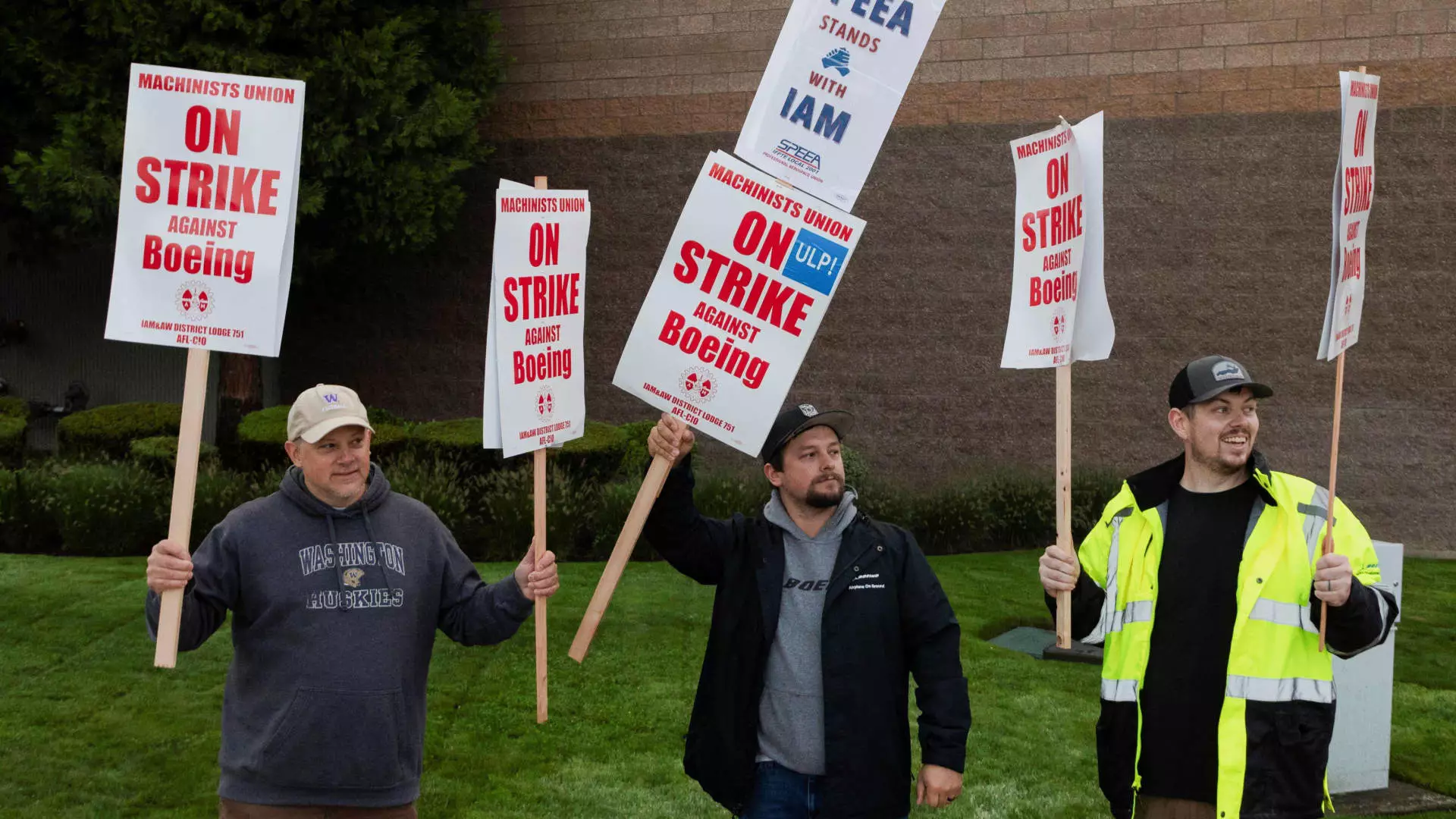Boeing, a leading aerospace manufacturer, recently faced a significant labor strike, initiated just after midnight on a Friday. This development marked a crucial point in the ongoing struggle between the company and its unionized workforce, specifically the International Association of Machinists and Aerospace Workers. The strike arose after factory workers overwhelmingly voted against a proposed labor contract, which they deemed insufficient in addressing their financial needs amidst rising living costs. As a result, this work stoppage has the potential to derail Boeing’s recovery efforts, particularly as the company attempts to regain its footing after multiple crises over the past few years.
Boeing CFO Brian West articulated the immediate financial implications of the strike, highlighting that the length of the work stoppage will heavily influence the company’s aircraft deliveries. He noted that key production lines, especially for the popular 737 Max model, would be significantly affected. By emphasizing a “laser-like focus” on conserving cash, West made it clear that the company is prioritizing immediate financial health over growth.
Market responses were swift and negative; Boeing’s shares dropped nearly 4% following the announcement of the strike, with credit rating agencies like Moody’s and Fitch placing Boeing’s ratings under review for potential downgrades. Such downgrades could exacerbate an already dire situation for Boeing, which has amassed considerable debt in recent years. Analysts have estimated that a strike lasting just 30 days could impose a staggering $1.5 billion hit on the company’s finances.
The rejection of the tentative labor agreement by the workforce underscores a broader discontent among employees. The proposed deal, which included a 25% wage increase over four years along with improvements to benefits, still fell short of the workers’ expectations, who were rallying for a dramatic 40% pay increase. Given the soaring costs of living, many workers felt that the offer did not adequately reflect their needs. The overwhelming votes—94.6% against the contract and 96% in favor of striking—demonstrate a workforce unified in their demands for better compensation and working conditions. The history of Boeing’s labor relations paints a picture of a strained relationship, especially following the last significant strike in 2008 that lasted nearly two months.
The current strike comes at a sensitive time for Boeing, which is grappling with intricate production challenges exacerbated by past safety crises. A recent incident involving a door plug blowout on a Boeing 737 Max 9 not only raised concerns about manufacturing quality but led to increased scrutiny from the Federal Aviation Administration (FAA). The FAA has been keenly monitoring Boeing’s production facilities and has insisted on stringent inspections. Consequently, the strike’s occurrence during this period of regulatory oversight raises further concerns about Boeing’s ability to meet production quotas and restore its reputation.
With uncertainty looming over the duration of the labor strike, Boeing’s management faces a formidable challenge in navigating these turbulent waters to stabilize operations. Brian West’s remarks about fostering a return to the negotiating table signal an urgent need for dialogue and compromise between the company and its workers. New CEO Kelly Ortberg’s role will be crucial as well, given the importance of establishing a constructive relationship with the union moving forward.
The labor strike at Boeing is emblematic of the broader challenges facing the company in recovering from previous setbacks. As Boeing strives to regain its foothold in the market, the outcome of this labor dispute will be critical not just for its financial health but also for the morale and trust of its workforce. The path forward remains uncertain, yet it is pivotal that Boeing recognizes and addresses the concerns of its employees while simultaneously navigating the complicated landscape of production and regulatory adherence.


Leave a Reply